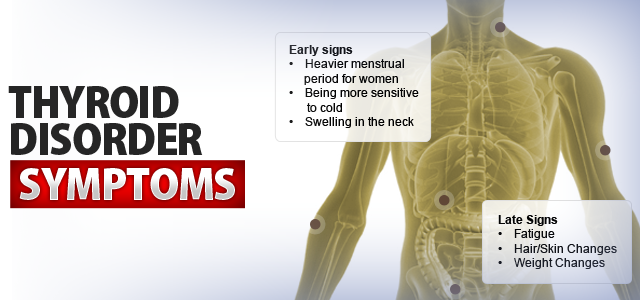Thyroid Disorders
Your Body’s “Butterfly Effect”
Could This Be the Culprit Making You Gain Weight, Feeling Tired, Moody, or ‘Not Quite Right’?
The butterfly effect describes how a tiny influence on one part of a system can have a tremendous impact on another part.
The Thyroid Gland is one part of the Hypothalamic-Pituitary Axis that can exert a butterfly-type effect on nearly every part of your body. It could very well be the hidden culprit behind your flagging energy, your moodiness, perhaps even that ‘flat tire’ feeling that makes it difficult for you to just get out of bed some mornings.
The thyroid is actually a butterfly-shaped gland itself located in your neck, and weighs only about 1.5 ounces. While it may be small when it comes to size, it is no small player when it comes to controlling numerous functions in your body.
As is the shape of the gland, so does its influence on the body have butterfly effect. It can impact nearly every aspect of your health, particularly your WEIGHT, energy level, mood, and metabolic functions, the beating of your heart, to the function of your sex hormones and organs.
Many people suffer from sub-optimal thyroid function and are not even aware of it. Whether diagnosed already with Hypo-thyroid or seeking the cause of your symptoms that just seem to be floating under the radar with your doctor, you need to be properly evaluated and optimally treated.

From the NIH [National Institute of Health] quote:
“You’re tired, weak, exhausted, weary, worn out. You have a lack of energy and as a result you feel distressed. You’re not functioning as well as you should. It’s called fatigue…”
Fatigue of course has many causes and the thyroid can sometimes be a scapegoat or the blame for other possible causes. For many that “flat tire” feeling is a direct result of the thyroid gland not functioning at its optimal level.
Many describe waking up in the morning feeling OK, but
- Fatigue creeps up on you by lunchtime…
- Feeling like you need a nap just to make it through the day…
- Frequently even mild exercise or activity leaves you feeling wiped out…
- Often so fatigued its difficult for you to perform well at work or recreation.
And when you add in mood changes or irritability, you may find it hard to maintain normal family / friend relationships.
Frequently use thyroid test, TSH [Thyroid Stimulating Hormone] is not enough to properly distinguish if your thyroid is functioning at it optimal level. Some tests that are considered essential for proper Thyroid Evaluation are:
- usTSH
- Free T3 / T4
- Cortisol Level
- Vitamin D(OH,25)
- Iodine (yes iodine, many are deficient)
- Thyroid Peroxidase Antibodies
- TSI [Thyroid Stimulating Immunoglobins]
- Ferritin
Once Diagnosed, then is the debate, what thyroid replacement regimen is Best?
Some of the available options each with its benefit and drawback:
- Sythroid (generic or Brand?)
- Armour Thyroid
- Nature-Thyroid
- Cytomel
- Vitamin Supplements (Which ones?)
Which is best for WEIGHT LOSS? Which is best for Mood, Energy? Not so simple, right? Consider recent studies that demonstrate replacing with ALL T3 is superior to T4 in increasing the metabolic rate.
Here are some tips to help you Everyday:
- Minimize your exposure to environmental toxins, such as pesticides, fertilizers, and even household cleaning products and antibacterials. These can act as hormone disruptors, which may interfere with thyroid function.
- Avoid heavy metals like mercury, found in tuna, amalgam dental fillings, certain vaccines, and even some over-the-counter products like contact lens fluid. Mercury can also adversely affect your thyroid.
- Limit your stress level as much as possible. Chronic stress interferes significantly with thyroid function.
- Stop eating soy, except in fermented forms such as miso or tempeh. Soy is NOT always a health food. Unfermented soy is high in chemicals called isoflavones, which may contribute to abnormal function of your thyroid gland and other health concerns.
- Make sleep a high priority. A thyroid imbalance may cause or contribute to sleep difficulties. While there is no “magic number” when it comes to the amount of sleep you need, most adults need 7-9 hours per night according to the National Sleep Foundation.
- Support your thyroid with optimal levels of thyroid-loving nutrients like vitamins A, D, E, riboflavin, niacin, and minerals such as zinc, selenium, and manganese.
- Plus, any effective approach to correcting thyroid function needs to consider support for the adrenal glands. The Adrenal Gland responsible for the release of stress hormones and it is thought they can become fatigued when over stimulated (as from physical or emotional stress) which leaves them unable to supply your body with an adequate amount of the hormones. Or conversely when persistently being stimulated (STRESS) it can affect the binding of Thyroid Hormones.



